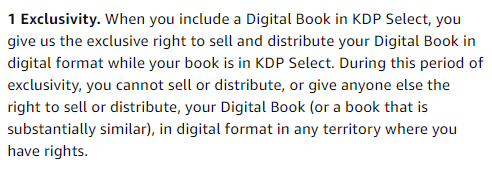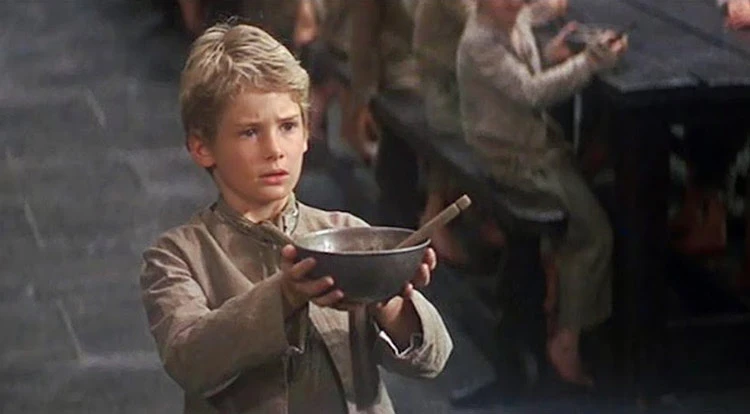Home » Blog » Online Books » The Dpp Business Case
The DPP Business Case

Written by
Phil Winston
To understand where the idea for an online book publishing service came from, it is important to understand where friction lies in the current book publishing market structure. Its "genesis" emerged from the all too common realisation faced by many self-publishing authors when they finish their first book.
That being: "Now what do I do?"
Here at the DPP we hit that wall ourselves, and quickly began to understand the reality of the situation as we searched through forums and Facebook groups looking for answers. The first cold dose of reality came in the form of the lack of earnings discussed frequently in many of those online discussion rooms. What was also apparent was that this clearly wasn't a result of a lack of effort - or even sales.
Making Money as an Author
Many writing related Twitter posts, as well as much of the conversation in author Facebook groups, all point towards a common problem. This being one of revenue generation, with only a tiny minority of authors making money, with some estimates stating that only 1% of authors get paid from their efforts.
Someone just told me today that only the top 1% of authors make money and now I'm questioning life decisions 😶
— Diane Asther (Without Flaws) (@diane_asther) July 8, 2021
This 1% stat only tells part of the story however, with the authors share of revenue from sales through traditional publishing (trad pub) routes currently somewhere between 10% for print and 25% for eBooks (Book Riot, 2021).
This can of course extend to 70% through KDP Select, but that comes with its own set of restrictions (KDP Select Terms, 2021).


The existence of such behemoths as Amazon or Barnes & Noble selling books online, however, tells us that there is obviously a market big enough to support them. The size of this market is in fact immense, and we've covered it in detail in another post.
This suggests that it is the market structure at the root of the earnings issue, not a lack of value creation. Instead, it is the less than ideal appropriation of the value that is created by authors.
So where is all the money going? And how can you claim more of it?
To explain this, we need to look at the changes that have occurred in the publishing industry over the past few decades, as the structure of that industry determines where the profitability lies.
Evolving Landscapes
Firstly, in order to sell anything successfully, you need two things
- 1) A product
- 2) Distribution
In practical terms this means your Book and a market to sell it into. Aligned to this, the value offered by trad pubs was primarily focused on distribution, as the printing of the book is a final aspect in the product creation step, and not something they could claim exclusivity over. The ability to provide that distribution service in turn, was based on two things.
- 1) Privileged access to media channels to advertise and market books.
- 2) A relative (and sometimes even explicit) dominance over the supply chain paths to, and of, retail outlets.
The advertising channels they had access to were generally limited to TV, Radio or other mass marketing channels, ones which a regular author could not ever hope to afford. Combined with this, the level of control over supply chains allowed trad pub houses to gatekeep entry, and with that extract maximum value from the market. Your bargaining power was limited by their ability to say no to you, denying you entry except on their terms. "Take the 10% on offer, or don't take anything at all!"

The second part of this value proposition was eroded however, when Amazon, B&N, and Nook, provided an alternative to retail distribution through a set of highly popular online storefronts. Locations where exposure to an audience could be gained more easily, with the scarcity of shelf space no longer a factor determining who could participate in the market.
These marketplaces are not as fruitful as they once were however, as even the digital shelves have become saturated. It is now almost impossible to stand out from the over 2 million new books published every year, and advertising within these marketplaces is increasingly essential to gain exposure to the audience there.
"But traditional publishers help with distribution."
— Nicolas Cole (@Nicolascole77) June 16, 2021
No, they don't.
Penguin Random House publishes over 70,000 digital and 15,000 print books each year.
For the top 0.01% of authors, they do a ton of marketing, PR, and "distribution."
The rest?
They hit *upload* on Amazon.
In addition to this, the erosion of another aspect of the trad pub competitive advantage, in the form of access to media channels, has also become less relevant over time.
Self-Publishing Meets Self-Distribution
One of the main beliefs about a trad pub contract is that the marketing and distribution will be "taken care of", and this is often put forward as a reason to explain the 90/10 royalty split. But increasingly, the marketing reach of the author is part of the evaluation when a contract is being negotiated (Berrett-Koehler, 2020). "How big is your Twitter or Facebook following? Good, we'll need it!". This is partly due to the proliferation and fragmentation of media channels, which the trad pub distributors no longer hold dominance over.
What therefore, is the advantage of such a contract, apart perhaps from prestige? No doubt such prestige has value, but this is perhaps more in the realm of sentimental value, which is not going to pay the bills. Only after-tax profit will do that. So while a larger social media following will help you to get a traditional publishing contract, it also reduces the advantages of such a contract at all.
There are also other negative aspects emerging, with the increasing politicisation of the larger trad pubs becoming a polarising factor for authors. Such censorship is only possible with gatekeepers at the entry points to the market however, and self distribution overcomes this also.
My prediction is that this will accelerate the already rapidly growing trend toward authors publishing under their own names instead of under publishers'. https://t.co/TKcWu2qkUy
— Paul Graham (@paulg) July 14, 2021
Paul Graham is essentially the father of Silicon Valley, having essentially invented eCommerce. When he is saying this, you know it means something.
Value Appropriation for Authors
So, the trad pub service and online marketplaces both offered to solve the distribution problem in different ways. But as outlined above, control over distribution into the market is no longer an advantage they hold. Increasingly, the value provided by this service, appears to be an increasingly lopsided value exchange. It is essentially now limited to the facilitation of transactions. This is of course the easy part, after the hard work of writing the book, promoting it and getting the reader to the checkout has been done by you. It is also served best at an individual level, with locally relevant payment options.
In addition they get to both keep your audience data, and with that, entrench their market position and relative advantage.
The house always wins. Well, if you play there that is.
The first question therefore is, if the use of a 3rd party distribution channel is worth 75% of revenue? If you could facilitate the transaction yourself, keep your audience details, and see performance data on your book, why not keep all of the value you generated?
You wrote the book, after all.
This was the position arrived at by one of the founders of the DPP. He had written two books and faced this increasingly common set of questions.
The DPP is the attempt to answer them through the enablement of self-distribution.
DPP Primary Benefit
This service is designed and intended to address the distribution component of selling books online, or even offering free books to people. After all, some of us just want to be read.
By helping to solve this issue, through the creation of author controlled sales channels, the "Now what do I do?" question can be answered. You publish, and then distribute to the market.
Perhaps most important part of this, in our view, is that value generated by writing the book can remain with the author, and not the distributor!